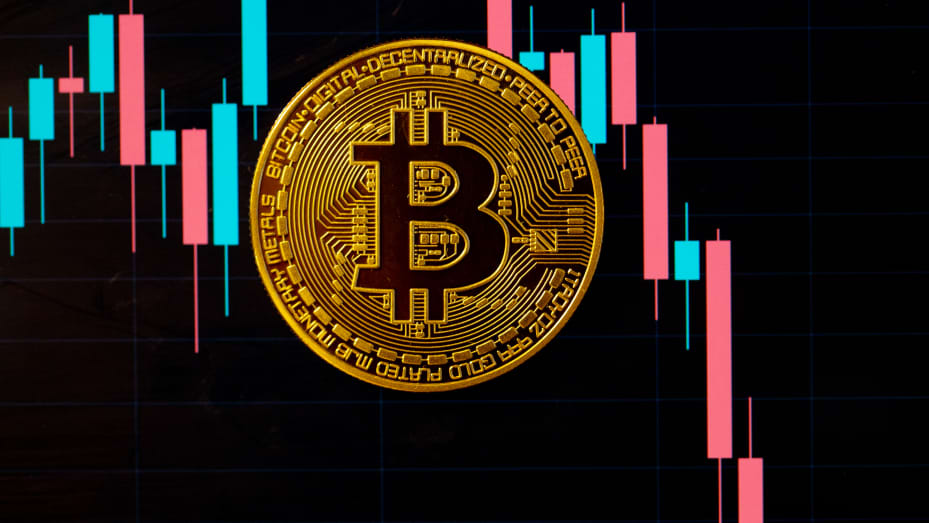In the realm of digital finance, Bitcoin has been the undisputed leader for over a decade. Its innovative blockchain technology has paved the way for countless applications, including the creation of merchant accounts tailored to Bitcoin transactions. However, as the landscape of cryptocurrencies evolves, so do the needs of merchants and consumers. Enter Dash, a rising star in the crypto world, offering faster transactions and enhanced privacy features. In this article, we explore the evolution of bitcoin merchant account and how they’re adapting to integrate Dash payments.
The Rise of Bitcoin Merchant Accounts
Bitcoin, introduced in 2009 by the pseudonymous Satoshi Nakamoto, revolutionized the concept of digital currency. Its decentralized nature and cryptographic security quickly garnered attention, leading to widespread adoption as a medium of exchange. As businesses recognized the potential of Bitcoin, the need for specialized merchant accounts emerged.
Bitcoin merchant accounts serve as gateways for businesses to accept Bitcoin payments from customers. These accounts typically integrate with existing payment processing systems, converting Bitcoin payments into fiat currency to mitigate price volatility risk. Additionally, they provide merchants with tools to manage transactions, track sales, and reconcile payments seamlessly.
Challenges and Opportunities
Despite Bitcoin’s popularity, early adopters of Bitcoin merchant accounts faced several challenges. Price volatility, regulatory uncertainty, and limited scalability were significant concerns for merchants considering Bitcoin integration. Moreover, the perception of Bitcoin as a niche payment method hindered its mainstream acceptance among businesses.
However, as the cryptocurrency market matured and regulatory frameworks evolved, these challenges gradually diminished. Companies specializing in Bitcoin merchant services developed robust solutions to address volatility issues, offering instant conversion to fiat currency at competitive rates. Furthermore, the growing acceptance of Bitcoin by major retailers and financial institutions bolstered its credibility as a legitimate payment option.
The Emergence of Dash
While Bitcoin paved the way for digital currencies, it also laid bare certain limitations, particularly regarding transaction speed and privacy. Enter Dash, a cryptocurrency forked from Bitcoin in 2014, aiming to address these shortcomings. Dash introduced several innovative features, including InstantSend for near-instant transactions and PrivateSend for enhanced privacy.
Dash’s focus on user experience and practical utility quickly gained traction within the cryptocurrency community. Its governance model, which allocates funds for development and marketing through a decentralized treasury system, ensured continuous innovation and ecosystem growth. As Dash gained momentum, merchants began exploring opportunities to integrate dash payments alongside Bitcoin.
Integrating Dash Payments into Merchant Accounts
Recognizing the demand for alternative cryptocurrencies, Bitcoin merchant account providers began expanding their services to support Dash payments. By integrating Dash into existing payment processing platforms, merchants gained access to a broader customer base while offering greater flexibility to consumers.
The integration of Dash payments into Bitcoin merchant accounts offers several advantages for both merchants and customers. For merchants, it diversifies payment options, reducing reliance on a single cryptocurrency and mitigating risk. Moreover, Dash’s InstantSend feature enables faster transactions, enhancing the overall shopping experience for customers.
Benefits for Merchants
Dash payments offer several benefits for merchants seeking to expand their payment options:
- Diversification
Integrating Dash alongside Bitcoin allows merchants to cater to a broader audience, including Dash enthusiasts and users seeking faster transaction speeds.
- Lower Fees
Dash transactions typically incur lower fees compared to traditional payment methods, reducing processing costs for merchants.
- Faster Settlements
Dash’s InstantSend feature enables near-instantaneous transaction confirmations, reducing settlement times and improving cash flow.
- Enhanced Privacy
Dash’s PrivateSend feature provides an additional layer of privacy for both merchants and customers, safeguarding sensitive transaction information.
Enhancing the Customer Experience
For customers, the integration of Dash payments offers greater flexibility and convenience when making purchases:
- Faster Transactions
Dash’s InstantSend feature ensures swift transaction confirmations, allowing customers to complete purchases quickly.
- Privacy Protection
Dash’s PrivateSend feature enhances privacy by obfuscating transaction details, preserving anonymity for sensitive transactions.
- Diverse Options
Customers can choose between Bitcoin and Dash payments based on their preferences, fostering a more inclusive shopping experience.
The Future of Cryptocurrency Payments
As the adoption of cryptocurrencies continues to expand, the future of dash payments looks increasingly decentralized and inclusive. Bitcoin merchant accounts paved the way for mainstream acceptance of cryptocurrency payments, offering businesses a gateway to the digital economy. With the emergence of innovative cryptocurrencies like Dash, merchants now have access to a broader range of payment options, catering to diverse customer preferences.
Conclusion
The evolution of Bitcoin merchant accounts to integrate Dash payments represents a significant milestone in the ongoing development of the cryptocurrency ecosystem. By embracing alternative cryptocurrencies, merchants can unlock new opportunities for growth while providing customers with enhanced flexibility and convenience. As the landscape of digital finance continues to evolve, the synergy between Bitcoin and Dash payments holds the promise of a more accessible, efficient, and inclusive financial system for all.
FAQs
- What is a Bitcoin merchant account, and how does it work?
A Bitcoin merchant account enables businesses to accept Bitcoin payments from customers. It functions similarly to a traditional merchant account but specifically caters to transactions involving Bitcoin. When a customer pays with Bitcoin, the payment is processed through the merchant account, converting the Bitcoin into fiat currency, which is then deposited into the merchant’s bank account.
- What are the benefits of having a Bitcoin merchant account?
Having a Bitcoin merchant account offers several advantages for businesses. Firstly, it opens up a global market, allowing merchants to accept payments from customers anywhere in the world without being subject to currency conversion fees or international transaction fees. Additionally, Bitcoin transactions are typically faster and cheaper compared to traditional payment methods like credit cards or bank transfers. Moreover, accepting Bitcoin can attract tech-savvy customers who prefer using cryptocurrency for their purchases.
- How can businesses set up a Bitcoin merchant account?
Setting up a Bitcoin merchant account involves several steps. First, businesses need to choose a reputable Bitcoin payment processor or gateway that offers merchant account services. Then, they’ll need to register for an account and provide necessary information such as business details, banking information, and compliance documentation. Once the account is approved, the merchant will integrate the payment gateway into their website or point-of-sale system to start accepting Bitcoin payments. It’s essential to ensure compliance with relevant regulations and security measures to safeguard against fraud and ensure smooth transactions.



















